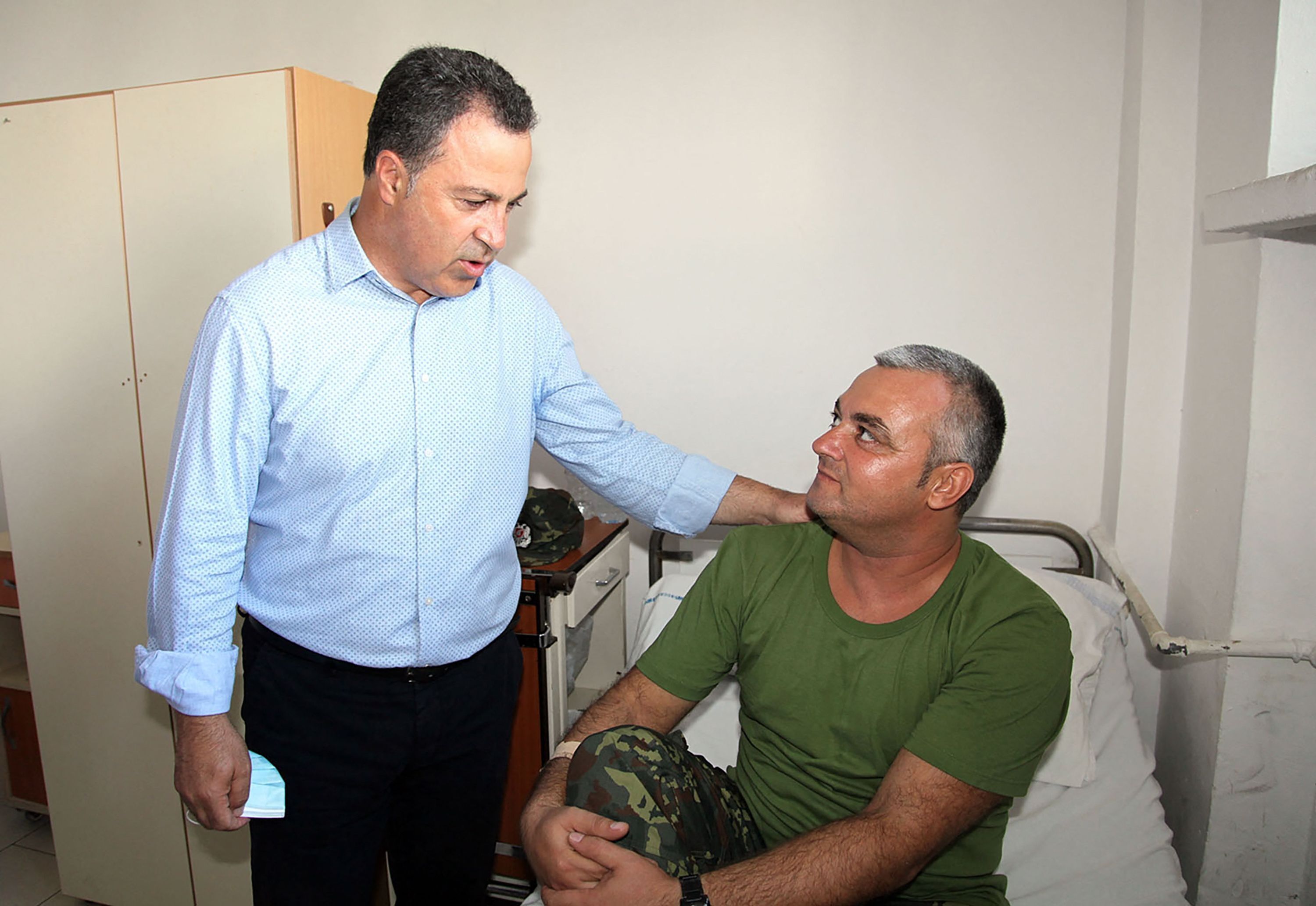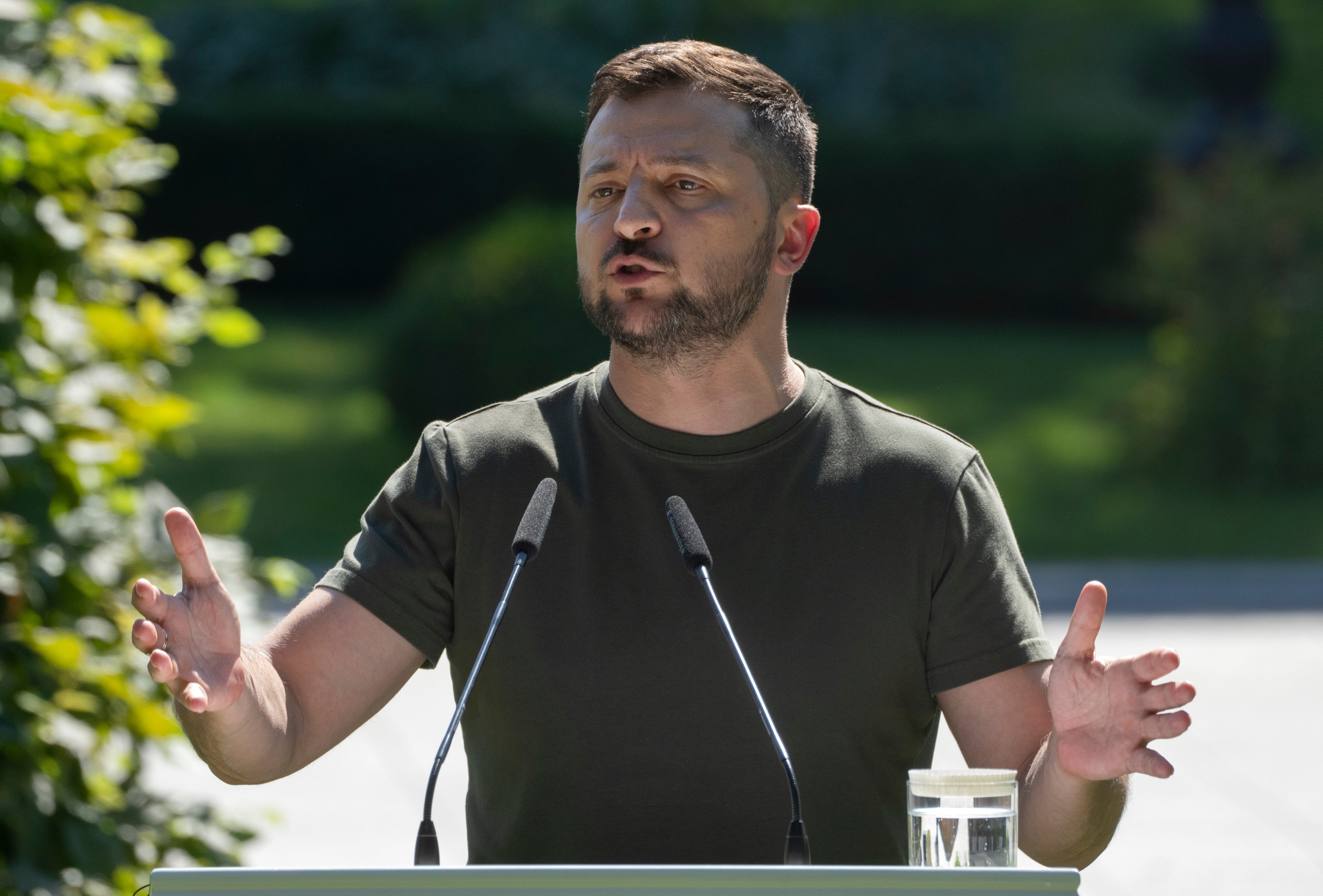Spy tales: Arrests of Russian, Ukrainian and Czech interlopers at military sites rattle Albania
Seven detained in two sites, prompting demands to impose Russia tourist ban

Your support helps us to tell the story
From reproductive rights to climate change to Big Tech, The Independent is on the ground when the story is developing. Whether it's investigating the financials of Elon Musk's pro-Trump PAC or producing our latest documentary, 'The A Word', which shines a light on the American women fighting for reproductive rights, we know how important it is to parse out the facts from the messaging.
At such a critical moment in US history, we need reporters on the ground. Your donation allows us to keep sending journalists to speak to both sides of the story.
The Independent is trusted by Americans across the entire political spectrum. And unlike many other quality news outlets, we choose not to lock Americans out of our reporting and analysis with paywalls. We believe quality journalism should be available to everyone, paid for by those who can afford it.
Your support makes all the difference.Two were waiting in a late-model sports car. Another had wandered onto a restricted military site and was taking photos.
Soldiers Aldo Bici and Ardian Cakan rushed up to the man. What was he doing, they demanded, loitering near a restricted military zone in the far-flung Gramsh district of southern Albania?
The man, who later turned out to be a Russian national who was in the country on a tourist visa, responded by spraying a temporarily blinding toxin into the soldiers’ eyes, according to an official account.
The two others, a Russian and a Ukrainian, sped away, triggering a series of events that have rocked the tiny western Balkan nation and prompted renewed calls for banning Russian tourists from entering Europe.
Over the weekend, Albanian authorities detained at least seven people suspected of spying on two sensitive but largely decommissioned military sites amid rising security worries in the western Balkans.
The incident on Saturday in Gramsh prompted roadblocks and a frenetic search through a sleepy area of southern Albania.
The Russian man, later identified as 24-year-old Mihail Zorin, was overpowered. Local police forces and army units manoeuvred to stop the late-model red Camaro with Ukrainian registration plates.
The Russians and the Ukrainian have been arrested on charges of espionage. The soldiers, Mr Bici and Mr Caka, have recovered from their injuries.
“What pride for the military guards who neutralised three individuals suspected of espionage,” Albanian prime minister Edi Rama wrote on Twitter.
On Sunday, Albanian authorities also detained four Czech nationals allegedly caught in a tunnel near yet another military site that has produced anti-aircraft missiles in Polican, which is also in the country’s south. The suspects insist they were tourists, according to local news outlets.

The Czechs have been released but remain under investigation, while the Russians and Ukrainian are being held and investigated by counter-terrorism and intelligence officials.
The detentions have added to pressure on the government of Mr Rama and other European nations to follow through on proposals to ban Russian visitors in an effort to pressure Moscow to end its war in Ukraine.
Stopping Russian tourists was a request made by Ukrainian president Volodomyr Zelensky when he addressed the Albanian parliament in May. Albania currently grants Russians visa-free travel in the summer months.
“Many Albanians think this was a real attack on a military facility,” said Leftioni Peristere, a journalist at Albania’s Klan TV. “Many people are asking the government to ban Russian tourists.”
Mr Peristere said eccentric wanderers from all over the world visit Albania’s abandoned and desolate Communist-era military sites and bunkers. One of the detained Russians, named by local media as 33-year-old Svetlana Timofoeva, is known as a blogger and photographer who documents such locales and has also got into trouble with authorities in Egypt for snapping pictures of sensitive facilities.
The sites where the incidents took place over the weekend are marked as restricted military zones. The reported use of a chemical agent against soldiers by one of the detained Russians and the confiscation of drones and an alleged “espionage device” purportedly disguised as a camera have combined to cast doubt on the suspects.
Albanians are also nervous about the safeguarding of military sites after a 2008 explosion at an ammunition warehouse that killed 26 people.
Russia’s war against Ukraine has raised tensions in the western Balkans, already a tinderbox. Local officials and diplomats fear military action by Moscow’s client Serbia directed at either Bosnia and Herzegovina or Kosovo, which has strong ethnic and linguistic ties to Albania, a Nato member since 2009.
The Kremlin is thought to have extensive intelligence networks in much of the Balkans, including Albania, a former communist country.
“The mystery and strength of Russia’s threat, both in Albania and elsewhere, lies in the extensive activity of its services in these countries,” said Enver Bytyci, a professor of international relations at Aleksander Moisiu University in Durres, Albania’s second-biggest city.
“The secret service in Albania is very active. Its main support is a nostalgic contingent of the period when Albania had close ties with the former Soviet Union. But the Russian influence extends to the media and certain segments or political persons. This gives the Kremlin an advantage.”
Adding to the security concerns, three Russian warships entered the Adriatic Sea off the coast of Albania this month, while a fourth has been operating in the Ionian Sea to the south.
Nato is in talks with Albania to build an Adriatic naval base and is currently revamping an old airbase. The country is also a node in a key pipeline that bypasses Russia in bringing natural gas to Europe from the Caucasus region.
Mr Bytyci accused the Albanian government of not taking its sensitive position seriously. He noted that news reports had alleged the three suspects in Gramsh had been wandering about for days and had allegedly scouted the site before.
“Being a member of Nato does not protect you from spies, sabotage or terrorist acts,” he said. “Although they stayed in a rural area, where every movement is observed, no one noticed them until the moment they attacked the military guards.”




Join our commenting forum
Join thought-provoking conversations, follow other Independent readers and see their replies
Comments